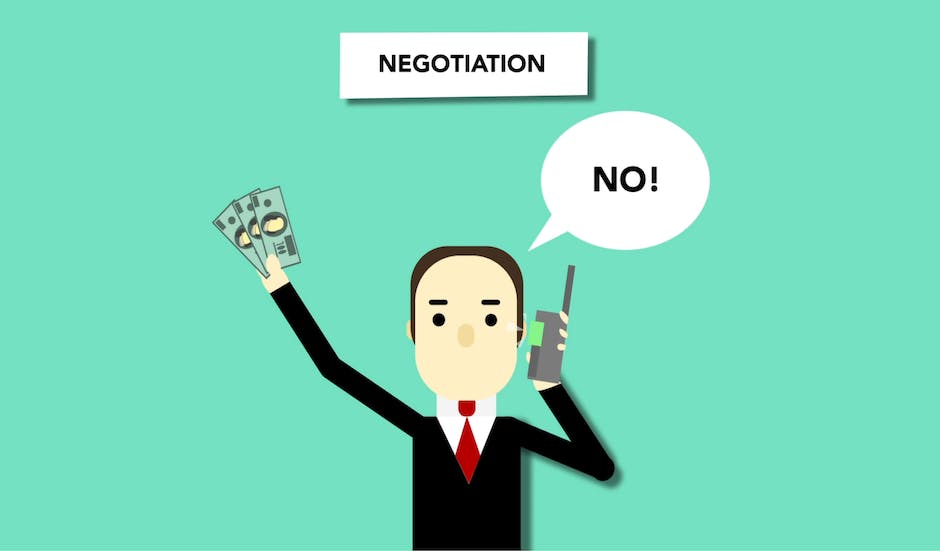Introduction
Starting a wholesale business at home can be an exciting and rewarding venture. It is a great way to make money while working from the comfort of your own home. With the right planning, you can create a successful business that will provide you with a steady income. This guide will provide you with the information you need to get started on your journey to becoming a successful wholesaler. We will discuss the basics of setting up a wholesale business, the different types of products you can sell, and how to market your business. By the end of this guide, you should have a better understanding of how to start a wholesale business at home.
How to Research the Market and Find Suppliers for Your Wholesale Business
Researching the market and finding suppliers for a wholesale business is an important step in launching a successful venture. To ensure that your business is well-positioned to succeed, it is essential to conduct thorough research and identify reliable suppliers who can provide quality products at competitive prices. Here are some tips to help you get started:
1. Identify Your Target Market: Before you begin researching potential suppliers, it is important to have a clear understanding of your target market. Consider factors such as demographics, purchasing habits, and preferences to determine the type of products that will be most appealing to your customers.
2. Research Potential Suppliers: Once you have identified your target market, you can begin researching potential suppliers. Start by searching online for wholesalers in your industry. Make sure to read customer reviews and compare prices to find the best deals. You may also want to consider attending trade shows or networking events to meet potential suppliers in person.
3. Evaluate Quality and Reliability: When evaluating potential suppliers, it is important to consider both quality and reliability. Ask for samples of their products and inspect them closely to make sure they meet your standards. Additionally, inquire about their delivery times and return policies to ensure that they can meet your needs.
4. Negotiate Prices: Once you have identified a few potential suppliers, it is time to negotiate prices. Be prepared to haggle and don’t be afraid to walk away if the supplier isn’t willing to meet your terms.
By following these steps, you can ensure that you are able to find reliable suppliers who can provide quality products at competitive prices. With the right research and negotiation skills, you can position your wholesale business for success.
What Licenses and Permits Do You Need to Start a Wholesale Business?
Starting a wholesale business requires obtaining the necessary licenses and permits from both federal and state governments. Depending on the type of business, the specific requirements may vary.
At the federal level, businesses must obtain an Employer Identification Number (EIN) from the Internal Revenue Service (IRS). This number is used to identify the business for tax purposes. Additionally, businesses that sell products or services across state lines may need to register with the Federal Trade Commission (FTC).
At the state level, businesses must obtain a business license from the Secretary of State’s office. Depending on the type of business, additional permits may be required. For example, businesses that sell alcohol or tobacco products may need to obtain special permits from the Alcoholic Beverage Control Board or the Tobacco Tax Division. Businesses that sell food products may need to obtain a permit from the Department of Agriculture.
In addition to the above, businesses may need to obtain local permits from their city or county government. These permits may include zoning permits, health department permits, and fire safety permits.
It is important to research the specific requirements for your business before starting operations. Failure to obtain the necessary licenses and permits can result in fines and other penalties.
How to Create an Effective Business Plan for Your Wholesale Business
Creating an effective business plan for your wholesale business is essential to ensure the success of your venture. A well-crafted business plan will provide a roadmap for your business, helping you to identify and achieve your goals. Here are some tips to help you create an effective business plan for your wholesale business:
1. Define Your Business Model: Before you begin writing your business plan, it is important to define your business model. Consider the type of products or services you will offer, the target market you will serve, and the pricing structure you will use.
2. Conduct Market Research: Once you have defined your business model, it is important to conduct market research to gain insight into the industry and competition. This will help you to identify potential opportunities and threats, as well as determine the best strategies for success.
3. Set Goals and Objectives: Setting clear goals and objectives is essential for any successful business. When creating your business plan, be sure to include measurable goals and objectives that will help you track progress and measure success.
4. Develop a Financial Plan: A financial plan is an important component of any business plan. It should include a budget, cash flow projections, and other financial information. Be sure to include realistic estimates and assumptions in your financial plan.
5. Outline Your Marketing Strategy: Your marketing strategy should outline how you plan to promote and sell your products or services. Consider the channels you will use, such as online, print, or radio advertising, as well as any promotional activities you may undertake.
6. Create an Action Plan: An action plan is a detailed list of tasks and activities that need to be completed in order to reach your goals. Be sure to include deadlines and assign responsibilities to ensure that tasks are completed on time.
By following these steps, you can create an effective business plan for your wholesale business. With a well-crafted plan in place, you can ensure the success of your venture.
Tips for Setting Up Your Home Office for a Wholesale Business
1. Choose a Dedicated Space: When setting up your home office for a wholesale business, it is important to choose a dedicated space that is free from distractions and noise. This will help you stay focused on the tasks at hand and ensure that you are able to work efficiently.
2. Invest in Quality Furniture: Investing in quality furniture is essential when setting up your home office. Make sure to purchase ergonomic chairs and desks that are comfortable and adjustable. This will help reduce fatigue and improve productivity.
3. Utilize Technology: Utilizing technology is key when running a wholesale business from home. Invest in a reliable computer system with plenty of storage space and a fast internet connection. Additionally, consider investing in software programs that can help streamline your operations.
4. Establish an Organizational System: Establishing an organizational system is essential for any successful business. Create filing systems for documents, invoices, and other paperwork. Additionally, invest in storage solutions such as shelves and cabinets to keep your workspace organized.
5. Set Up a Communication System: Setting up a communication system is also important when running a wholesale business from home. Invest in a reliable phone system and consider using video conferencing software to communicate with clients and vendors.
By following these tips, you can easily set up your home office for a successful wholesale business. With the right tools and equipment, you can create a productive workspace that will help you achieve success.
How to Price Your Products for Maximum Profit in a Wholesale Business
Pricing your products for maximum profit in a wholesale business is an important part of running a successful business. Setting the right price can help you maximize profits while still providing customers with competitive prices. Here are some tips to help you price your products for maximum profit:
1. Research Your Market: Before setting prices, it’s important to research the market and understand what other businesses are charging for similar products. This will give you an idea of what prices are reasonable and competitive.
2. Consider Your Costs: When pricing your products, make sure to factor in all of your costs, including materials, labor, overhead, and shipping. This will help you determine a price that covers all of your expenses and allows you to make a profit.
3. Set Competitive Prices: Once you have determined your costs, set prices that are competitive with other businesses in your market. This will help ensure that customers view your products as a good value.
4. Offer Discounts: Offering discounts on bulk orders or for repeat customers can help you increase sales and boost profits.
5. Monitor Prices: As the market changes, it’s important to monitor prices and adjust accordingly. This will help you stay competitive and maximize profits.
By following these tips, you can ensure that you are pricing your products for maximum profit in a wholesale business.
Strategies for Promoting Your Wholesale Business Online
1. Utilize Social Media Platforms: Leverage the power of social media to promote your wholesale business online. Create accounts on popular platforms such as Facebook, Twitter, Instagram, and LinkedIn and post regularly about your products and services. Use hashtags to reach a wider audience and engage with potential customers.
2. Develop an SEO Strategy: Search engine optimization (SEO) is essential for any online business. Research keywords related to your business and use them in your website content, blog posts, and product descriptions. This will help you rank higher in search engine results and attract more visitors to your site.
3. Invest in Paid Advertising: Paid advertising can be a great way to get your business in front of potential customers. Consider investing in Google Ads, Facebook Ads, or other forms of paid advertising to reach a larger audience.
4. Offer Discounts and Promotions: Offering discounts and promotions is a great way to attract new customers and encourage existing customers to purchase more from your business. Consider offering discounts on bulk orders or free shipping for orders over a certain amount.
5. Build an Email List: Building an email list is a great way to stay in touch with your customers and keep them informed about new products and promotions. Offer incentives such as discounts or free shipping to encourage customers to sign up for your email list.
6. Leverage Influencers: Reach out to influencers in your industry and ask them to promote your business. Influencers have a large following and can help you reach a wider audience.
7. Network with Other Businesses: Networking with other businesses in your industry can help you build relationships and increase brand awareness. Consider attending trade shows or joining local business groups to meet potential partners and customers.
How to Use Social Media to Grow Your Wholesale Business
Social media is an invaluable tool for businesses of all sizes, including those in the wholesale industry. By leveraging the power of social media, you can reach a larger audience, build relationships with customers, and increase your sales. Here are some tips to help you use social media to grow your wholesale business.
1. Establish Your Presence: Before you can start using social media to promote your business, you need to establish a presence on the platforms that make sense for your business. Choose the networks that your target audience uses most often and create accounts for each one. Make sure to fill out your profile information completely and include a link to your website.
2. Post Regularly: Once you have established your presence, it’s important to post regularly. This will help keep your followers engaged and ensure that your content is seen by as many people as possible. Aim to post at least once a day, but don’t be afraid to post more often if you have something interesting to share.
3. Engage With Your Followers: Social media isn’t just about broadcasting your message; it’s also about engaging with your followers. Respond to comments, answer questions, and thank people for their feedback. This will help build relationships with your customers and show them that you value their input.
4. Promote Your Products: Of course, one of the main goals of using social media is to promote your products. Share photos and videos of your products, highlight special offers, and let your followers know when new items are available.
5. Monitor Your Progress: Finally, it’s important to monitor your progress and adjust your strategy accordingly. Track your metrics, such as likes, shares, and comments, to see what type of content resonates with your audience. Use this information to refine your approach and maximize your results.
By following these tips, you can use social media to grow your wholesale business and reach a wider audience. Good luck!
Best Practices for Managing Inventory in a Wholesale Business
1. Establish a Reorder Point: Establishing a reorder point is essential for managing inventory in a wholesale business. This will help you determine when to order more stock and ensure that you have enough inventory on hand to meet customer demand.
2. Utilize Automated Inventory Management Systems: Automated inventory management systems can help streamline the process of tracking inventory levels, ordering new stock, and managing supplier relationships. These systems can also provide valuable insights into customer buying patterns and help you make informed decisions about inventory levels.
3. Monitor Stock Levels Regularly: It’s important to regularly monitor stock levels to ensure that you have enough inventory on hand to meet customer demand. This can be done manually or with an automated system.
4. Track Supplier Performance: Tracking supplier performance is essential for managing inventory in a wholesale business. This will help you identify any issues with suppliers and ensure that they are meeting your expectations.
5. Utilize Barcode Scanning Technology: Barcode scanning technology can help streamline the process of tracking inventory levels and ordering new stock. This technology can also help reduce errors and improve accuracy.
6. Implement Quality Control Measures: Quality control measures should be implemented to ensure that all products meet customer expectations. This can include inspecting incoming shipments, testing products, and conducting regular audits.
7. Utilize Data Analytics: Data analytics can provide valuable insights into customer buying patterns and help you make informed decisions about inventory levels. This can help you optimize inventory levels and reduce costs.
8. Develop a Return Policy: Developing a return policy is essential for managing inventory in a wholesale business. This will help you manage returns and ensure that customers are satisfied with their purchases.
How to Develop Relationships with Customers and Suppliers for Your Wholesale Business
Developing relationships with customers and suppliers is essential for the success of any wholesale business. Establishing strong connections with both parties can help ensure that your business runs smoothly and efficiently. Here are some tips to help you build relationships with customers and suppliers:
1. Communicate regularly. Make sure to stay in touch with both customers and suppliers on a regular basis. This will help keep them informed about your business and its products or services. Additionally, it will give you an opportunity to get feedback from them and address any issues they may have.
2. Offer incentives. Offering incentives such as discounts or free shipping can be a great way to show customers and suppliers that you value their business. This can help foster loyalty and encourage them to continue working with you.
3. Be responsive. Respond quickly to customer inquiries and supplier requests. This will demonstrate that you are reliable and dependable, which can help build trust between you and your customers and suppliers.
4. Show appreciation. Showing appreciation for customers and suppliers is important. A simple thank you or gesture of appreciation can go a long way in strengthening relationships.
By following these tips, you can develop strong relationships with customers and suppliers for your wholesale business. Doing so will help ensure that your business runs smoothly and efficiently.



